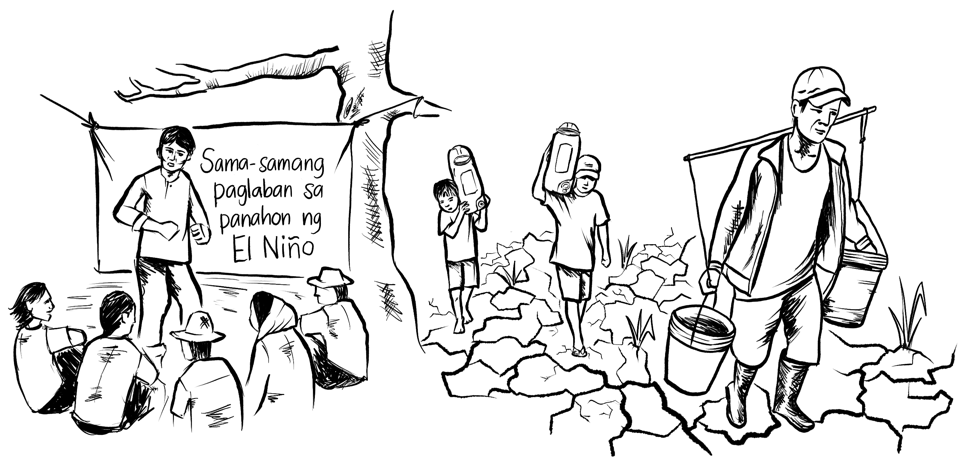The total amount of damage to the agricultural sector has reached ₱ 78.45 million due to drought in Negros Occidental and part of Western Visayas, the region of El Niño today. Eleven (three cities and eight towns) of its 32 municipalities are most affected by the drought. Thousands of families are now suffering from the hunger and poverty of drinking water.
In the face of the negligence of the local government and the US-Marcos regime, the uninterrupted militarization, the peasant masses were no longer able to conquer but come together to collectively deal with the drought.
Government charges
The farmers' organization plans to promote the mass campaign in Negros Occidental to address El Niño. They have begun consultations, meetings and study campaigns at the Barangay Level, and they target the people to the People's and District Level. They prepare a petition containing their call to the government for adequate aids, food and subsidies in their production.
The peasant masses in the province are now facing the destruction of their crops. Only 41,140 hectares of 94,297 hectares of irrigation targets are irrigation, which is now affected by drought. One farmer's story said, “We haven't done 3rd rice cropping anymore because we only rely on the rain for irrigation.” S
As a result, others are just planning to plant corn to keep up with their food. However, they still couldn't get started until there was no rain for irrigation. Others, planting vegetables and are now consuming water in remote wells to sprinkle. "The source has run out, even small rivers are gone," said another.
Nationwide, only 67% of the government's target has been implemented that irrigation has implemented in recent years. Many canals are no longer profitable, the gear is different and it has been damaged. Irrigation for irrigation from dams is also reduced as it is provided to industry and electrical services.
Even their pets are affected as well. There is no more buffalo, cow, goat, and other pet because the weeds are dry and they have nothing to eat. There were animals when they died from the heat.
Not only livelihood, but even the health of the residents is affected by El Niño. Excessive heat experienced has resulted in epidemics such as cough, fever, colds and other diseases. Some stroke cases have also been recorded in some areas, increasing blood pressure, and easy fatigue.
In the face of this, they were deeply insulted by the low ₱ 2,500 that the local government would distribute to a three -hectare field. According to them, ₱ 15 million funds for pumps and irrigation pumps and equipment are also released.
They say, if they are not provided with significant help, they are willing to act together for dialogue and confrontation with local agencies.
Characters
To keep up with the production, the farmers raised the Dagyaw-Aim, the traditional form of agricultural cooperation in the region.
In the southern part of Negros Occidental, a communal garden is set to plant a land on the land that has been successful in a campaign. They agreed to be planted in the ground. “This is an initial aspect of cooperation… we follow the framework of“ work points, ”sharing the peasant participant. Every night, they agreed that the group of women would sprinkle with Maisa.
The unity and work of alliance with the middle forces in the community also resulted. According to them, the hoses they received were a great help. This is what they use to sprinkle especially and the source of water is far away.
"Our help is more developmental especially during the El Niño period ... especially and the work on camps is finalized," a farmer said. It will also help, he said, with the food source of drought. At this time, a farmer even proved, "There is no hope but our cooperation."

